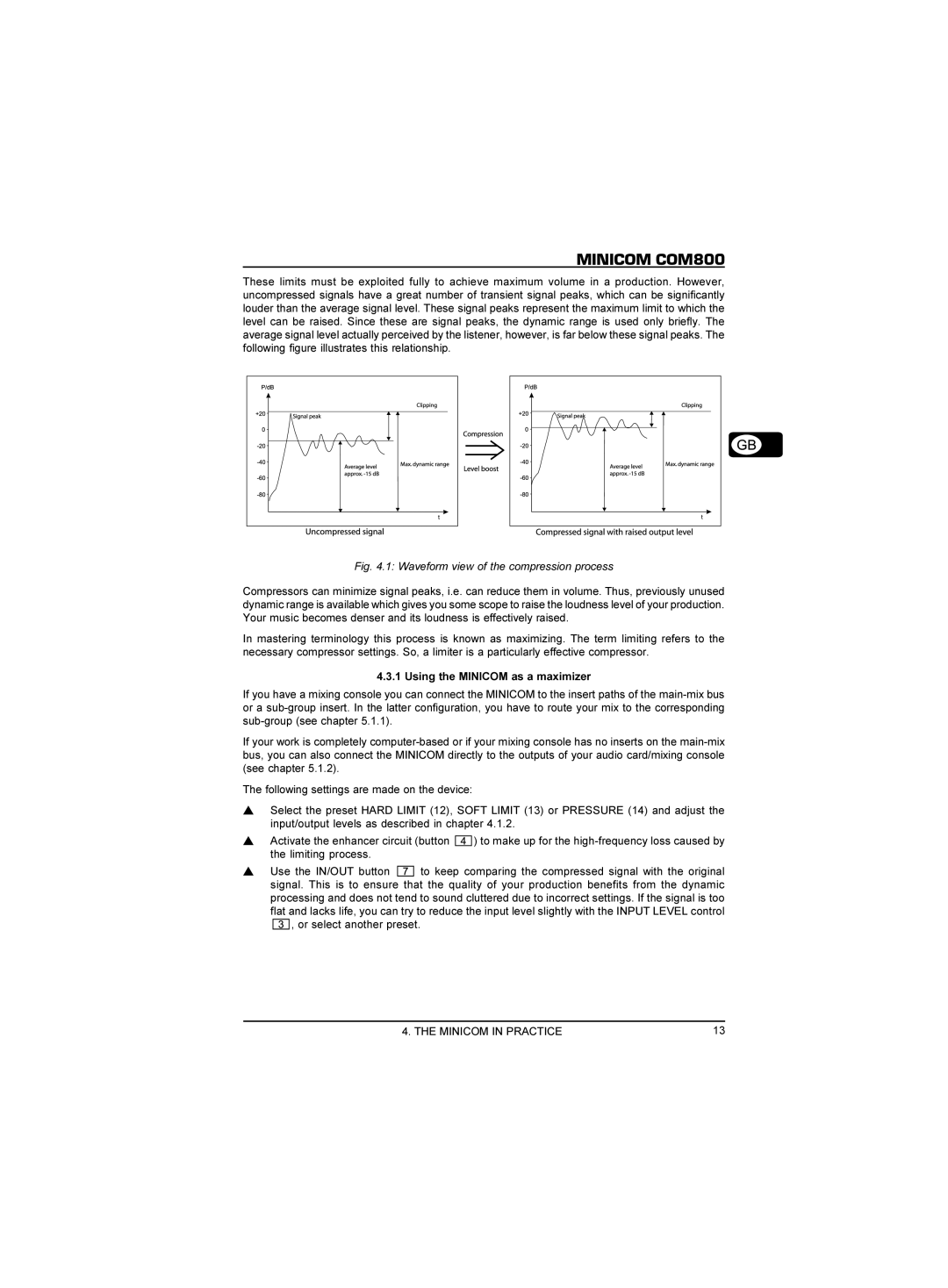
MINICOM COM800
These limits must be exploited fully to achieve maximum volume in a production. However, uncompressed signals have a great number of transient signal peaks, which can be significantly louder than the average signal level. These signal peaks represent the maximum limit to which the level can be raised. Since these are signal peaks, the dynamic range is used only briefly. The average signal level actually perceived by the listener, however, is far below these signal peaks. The following figure illustrates this relationship.
Fig. 4.1: Waveform view of the compression process
Compressors can minimize signal peaks, i.e. can reduce them in volume. Thus, previously unused dynamic range is available which gives you some scope to raise the loudness level of your production. Your music becomes denser and its loudness is effectively raised.
In mastering terminology this process is known as maximizing. The term limiting refers to the necessary compressor settings. So, a limiter is a particularly effective compressor.
4.3.1 Using the MINICOM as a maximizer
If you have a mixing console you can connect the MINICOM to the insert paths of the
If your work is completely
The following settings are made on the device:
sSelect the preset HARD LIMIT (12), SOFT LIMIT (13) or PRESSURE (14) and adjust the input/output levels as described in chapter 4.1.2.
sActivate the enhancer circuit (button ![]() ) to make up for the
) to make up for the
sUse the IN/OUT button ![]() to keep comparing the compressed signal with the original signal. This is to ensure that the quality of your production benefits from the dynamic processing and does not tend to sound cluttered due to incorrect settings. If the signal is too flat and lacks life, you can try to reduce the input level slightly with the INPUT LEVEL control
to keep comparing the compressed signal with the original signal. This is to ensure that the quality of your production benefits from the dynamic processing and does not tend to sound cluttered due to incorrect settings. If the signal is too flat and lacks life, you can try to reduce the input level slightly with the INPUT LEVEL control ![]() , or select another preset.
, or select another preset.
4. THE MINICOM IN PRACTICE | 13 |
